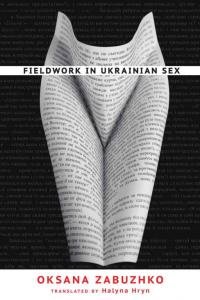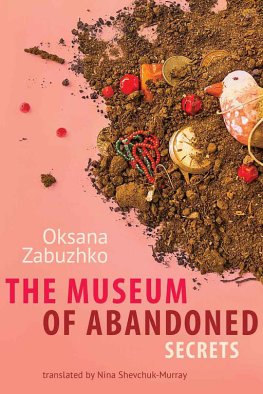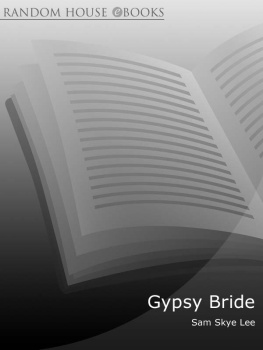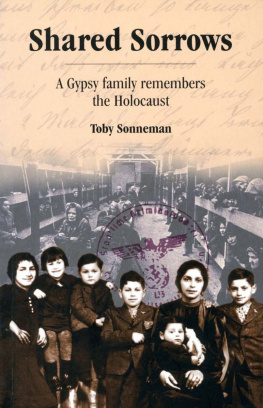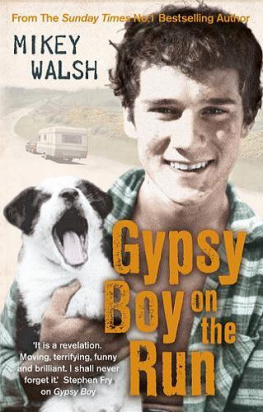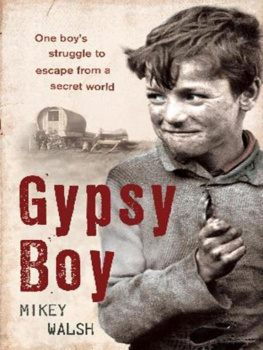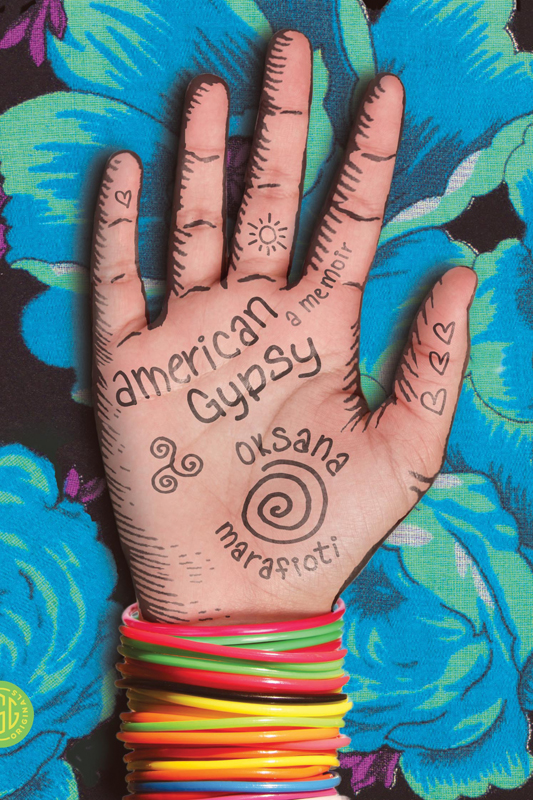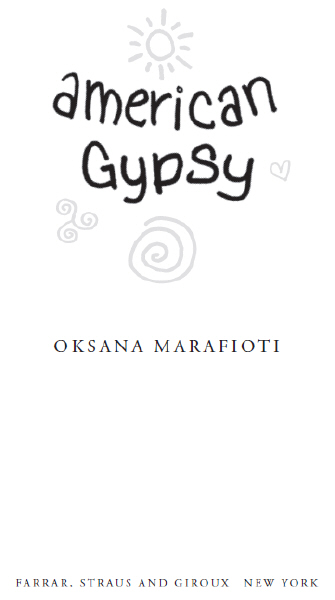
For my parents
We are all wanderers on this earth. Our hearts are full of wonder, and our souls are deep with dreams.
ROMANI SAYING
AUTHORS NOTE
There are well over five million Romani people living in every corner of the world today. We are bound by thousands of years of common history, but our culture is as diverse as our customs and dialects. Although there are many similarities between the clans, the stories in this book are mainly those of my experiences growing up in the Romani community of the former Soviet Union.
CONTENTS
AMERICAN CHEESE
The woman on the other side of the desk scribbled in her files. I studied her with interest: perfectly manicured nails, killer perm, and a beige pantsuit with the American embassy ID clipped to the left breast pocket. She warmed us now and then with one of those smiles that make you want to ask its owner to be your childs godparent even if youve only just met. She didnt look like someone who held the fate of my family in her hands.
Before the interview that morning, Mom had instructed Dad not to speak, for two reasons. First, he couldnt complete a sentence without swearing. And second, but more important, he always said the wrong thing.
The woman looked up from her paperwork and turned to my father. In a version of Russian that made me feel like I was teetering on a balance beam along with her, she said, Mr. Kopylenko, tell why you want exist in United States?
I stared at Dads fedora, thankful that at least he had given up his earrings for a day. Mom tightened her grip on her purse, and my eight-year-old sister, Roxy, stopped swinging her legs.
Dad straightened, cleared his throat, and said in equally precarious English, I want play with B.B. King. I great Gypsy musician and he like me. When he hear me play, we be rich. Here, I great musician, but nobody know. We live in 1980s, but feel like 1880s. Russian peoples only like factory and tractor. I no drive tractor. I play guitar. Her name Aphroditta. Also. He lifted his index finger to stress the importance of what was coming next. I super-good healer. I heal peoples. If you have hemorrhoid, I fix. I take tumor with bare hands. In Russia, I not free. I go to jail, you understand?
I was mortified, my eyes jumping between Dad, the awfully quiet American, and my mom, whod plastered on a smile like a fresh Band-Aid.
We want our girls to have a better future, Mom said in Russian, after recouping from the awkward pause. You understand.
Years of managing a Roma performing ensemble had taught my mother the schmooze side of business. She closed many impossible deals over black caviar and bottles of Armenian cognac, items she couldnt bring to our interview, though not for lack of trying. That day, November 18, 1989, Mom had put on a periwinkle wool dress, a fox-fur coatwe had waited in line outside the embassy for three hoursa pair of Swedish-made boots, and not a flicker of jewelry except for her wedding band. She had made sure none of us looked too rich or too poor; it was important to appear like the average Soviet family. This was tricky, since, as far as Americans knew, the USSR did not have a middle class and was not supposed to have an upper class, which we happened to belong to.
This wasnt Moms first trip to the embassy. Her brother Arsen, who had moved with his familyincluding two of my favorite cousins, Nelly and Aidato Los Angeles three years before, sent us a visa that was short an important form: his agreement to sponsor us when we first arrived in the States. The visa might as well have been blank without it. But Mom didnt give up, even though it took her years of networking, bribing, and entertaining in the classiest restaurants to finally get our file going. This last family interview was the key, quite literally, to freedom.
Thankfully Dad had kept quiet, and the American asked only Mom questions from that point on. Soon the two women were swapping locations of the best butcher shops in town. On Wednesdays, go to Komsomolskaya Ploshad. Ask for Borya. Tell him I sent you, Mom said, voice low as if the room were full of strangers waiting to snatch her secret.
It still felt then as if we were bargaining like prisoners caught between an unfair sentence and a pardon, but I could hear that freedom. In my ears, bells were ringing, that huge music they belted out from the towers of St. Basils Cathedral in Red Square.
The woman flipped the pages of our file and addressed my mother in measured Russian: Id read here that you drink? She lifted an arm to her lips and curled her fingers around an imaginary bottle. And a needle scratched across my sound track, exactly the way you hear it in movies.
The four of us halted like toys unwound.
Mom drank often. This was after Dad had nearly died of alcohol poisoning and renounced booze as the religion of choice, and before Mom started drinking every day. But what if Americans didnt drink? Ever. I hadnt considered that possibility.
With a look of complete mortification the woman said, Oh goodness. Sometimes my pronunciation is bad. You sing, right? You singer.
All the Kopylenkos in the room showed signs of life for the first time in at least fifteen seconds.
Yes, yes, I do! Mom laughed and we joined in, somewhat maniacally, as I recall. In Russian, drink and sing are a letter apart.
At the end of the hour, the American finally stamped our papers. She blushed while my parents took turns hugging her, all three talking as if they were going to be neighbors once we moved. Even when we walked out of the office I couldnt breathe, too afraid she would change her mind and rush out to take back the good news.
Once we had our permission my parents didnt waste time packing. In their desperation to leave they didnt pause to consider the difficulties they might encounter across the ocean. They just knew that everything would be better in America.
The days leading up to our departure seesawed between too much activity and too little sleep. Were finally getting out of this hellhole, Dad told anyone willing to listen. He practiced his guitar with frenzied dedication, for that fantasy meeting with his hero, B.B. King. It never crossed his mind that maybe he couldnt walk up to any old music legend and dazzle him with killer technique.
Mom sold or gave away most of our valuables because Soviet customs employees werent shy about confiscating anything that turned a profit on the black market. Even our house had to go. According to Soviet law, we had to surrender all real estate before emigrating. Moms relatives talked her into giving it to one of her distant cousins. It was better than seeing it go to a stranger. My parents had friends who put their names on waiting lists for years for an opportunity to buy Moscow real estate. As connected as Mom was, it had taken her two cases of cognac and fifteen thousand rubles to bribe a housing authority official to bump up her name for a fifty-year-old house with cracked shutters.
Our house was located near the city limits, where oak and maple trees commanded the streets, making human structures look insignificant and fragile.
Muscovites preferred the city high-rises, and I didnt know that only the old folks and the Gypsies still lived in those old houses on the outskirts until one of my fourth-grade classmates educated me.
Its like I read in my dads newspaper, Nastya said, pushing a mop around our classroom. We had floor duty every Tuesday after school. Our leaders built these new apartments for everyone to live in. The old people got smart eventually. But the Gypsies set up tents in the courtyards and said they liked to sleep and pee outside. Can you imagine? If you ask me, I think they just didnt know what to do with all those walls and doors. Like, if you bring a mouse inside, its always looking for a hole to jump into.


